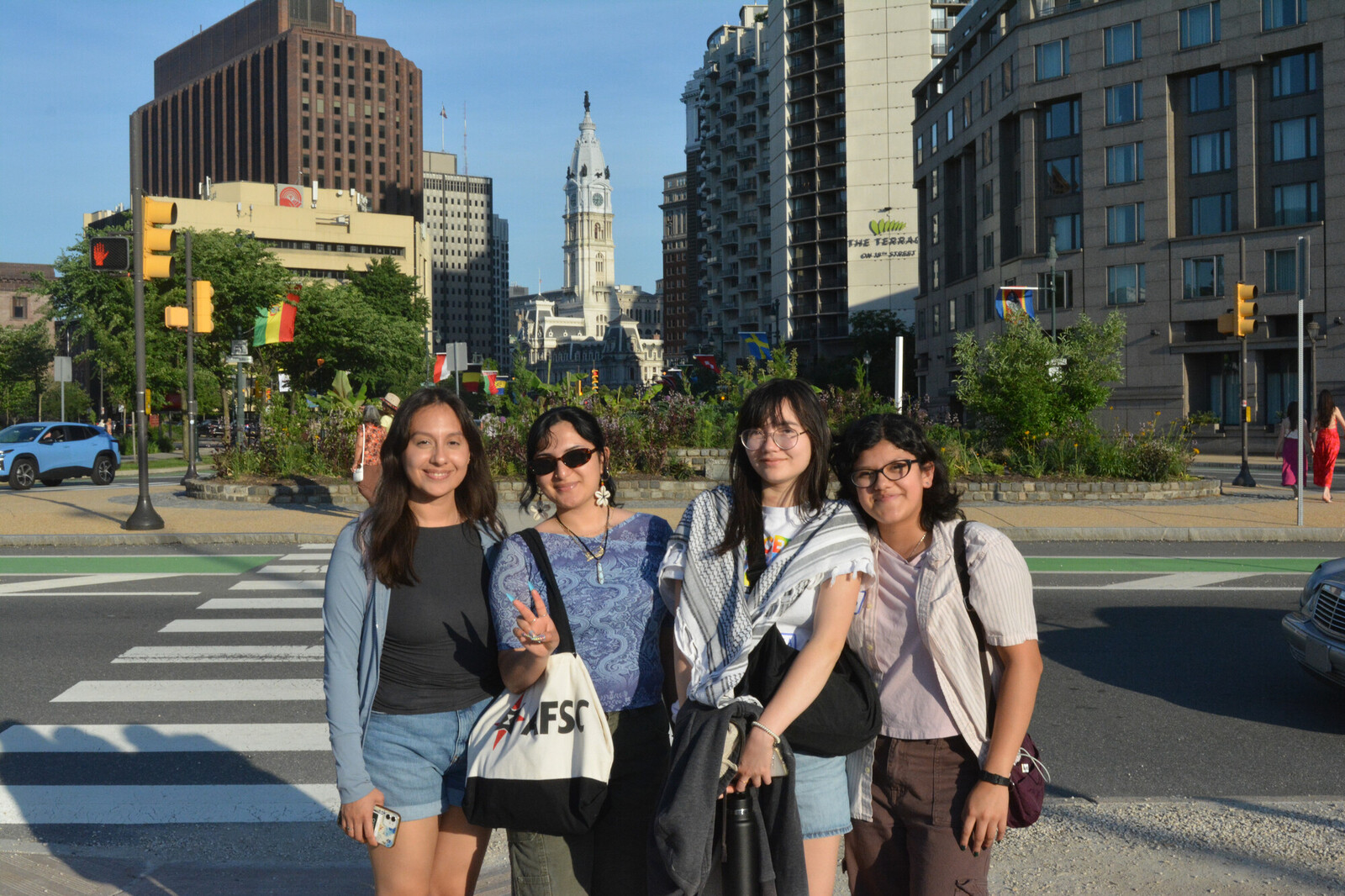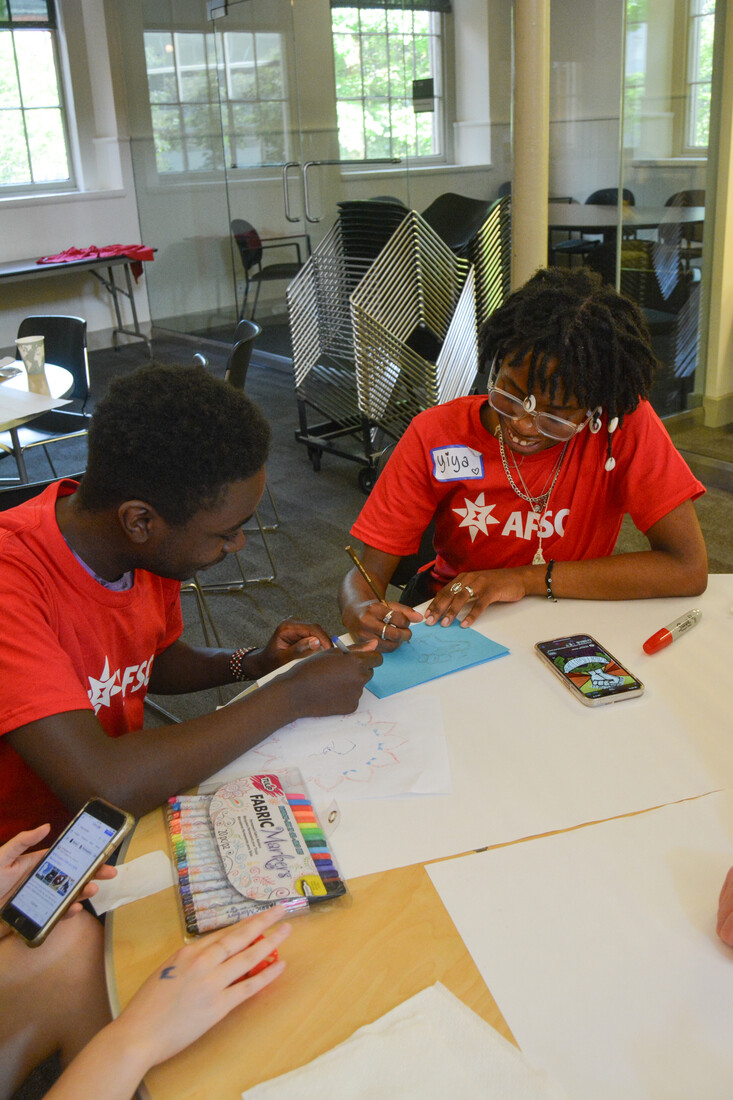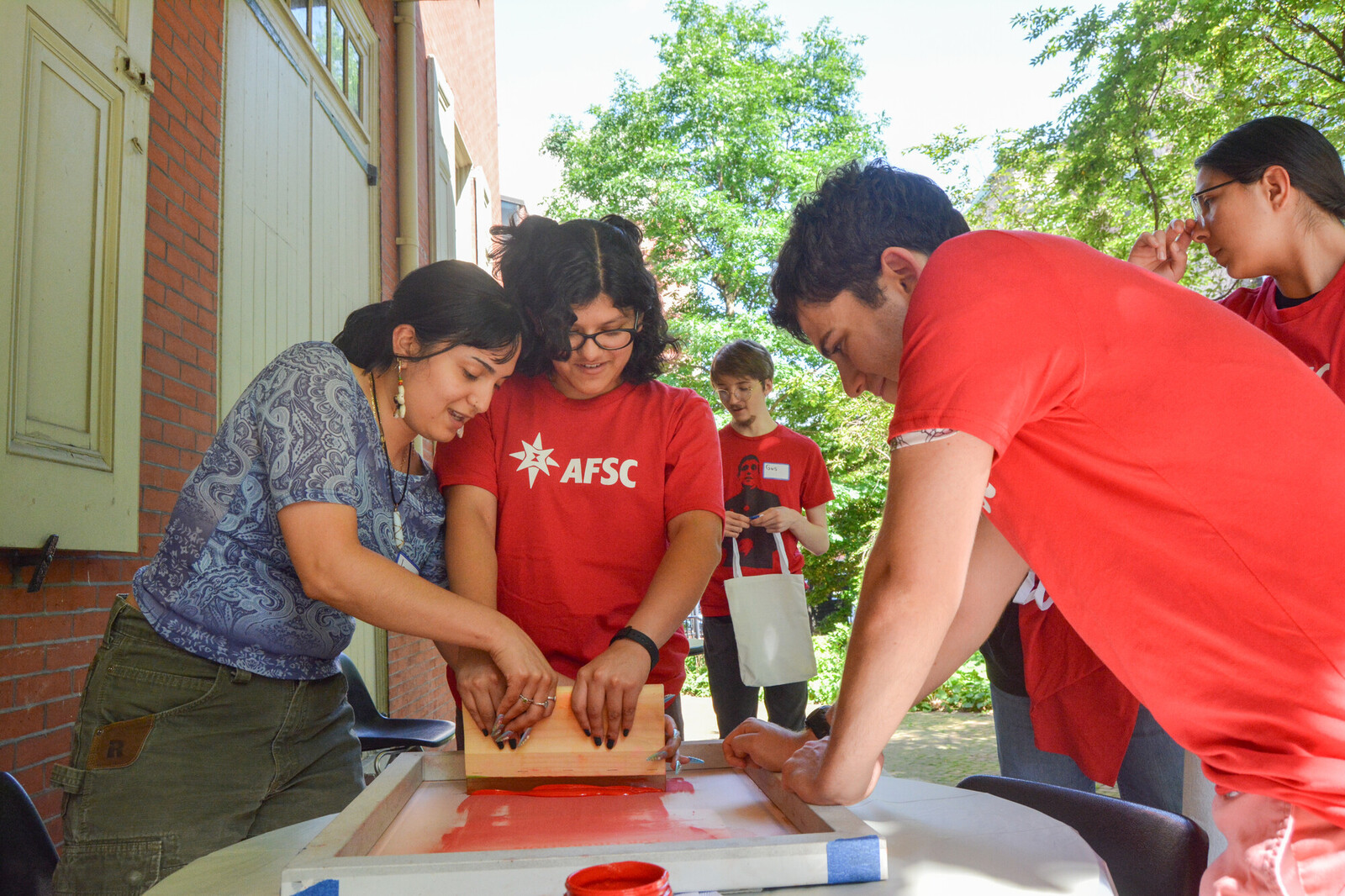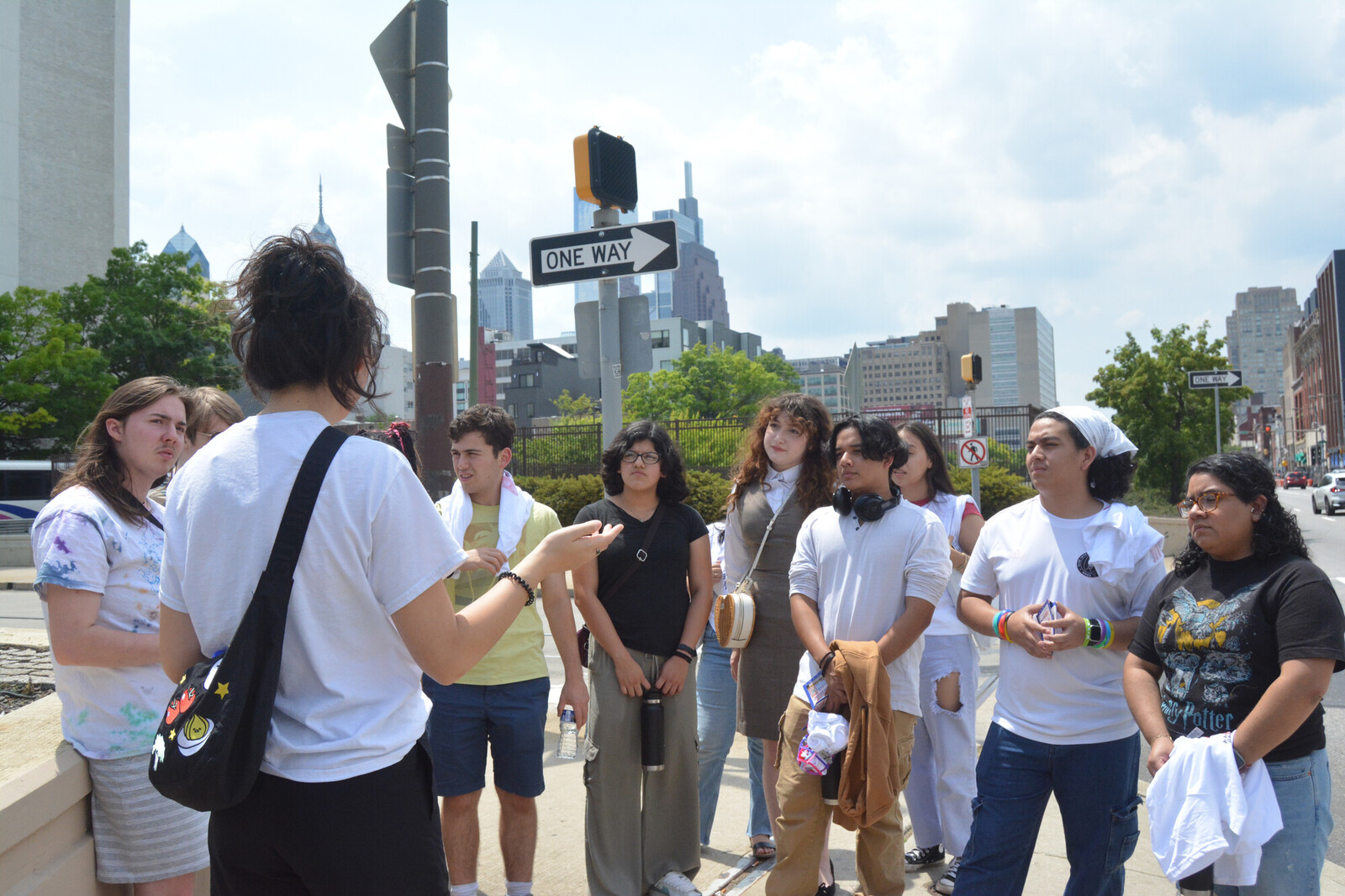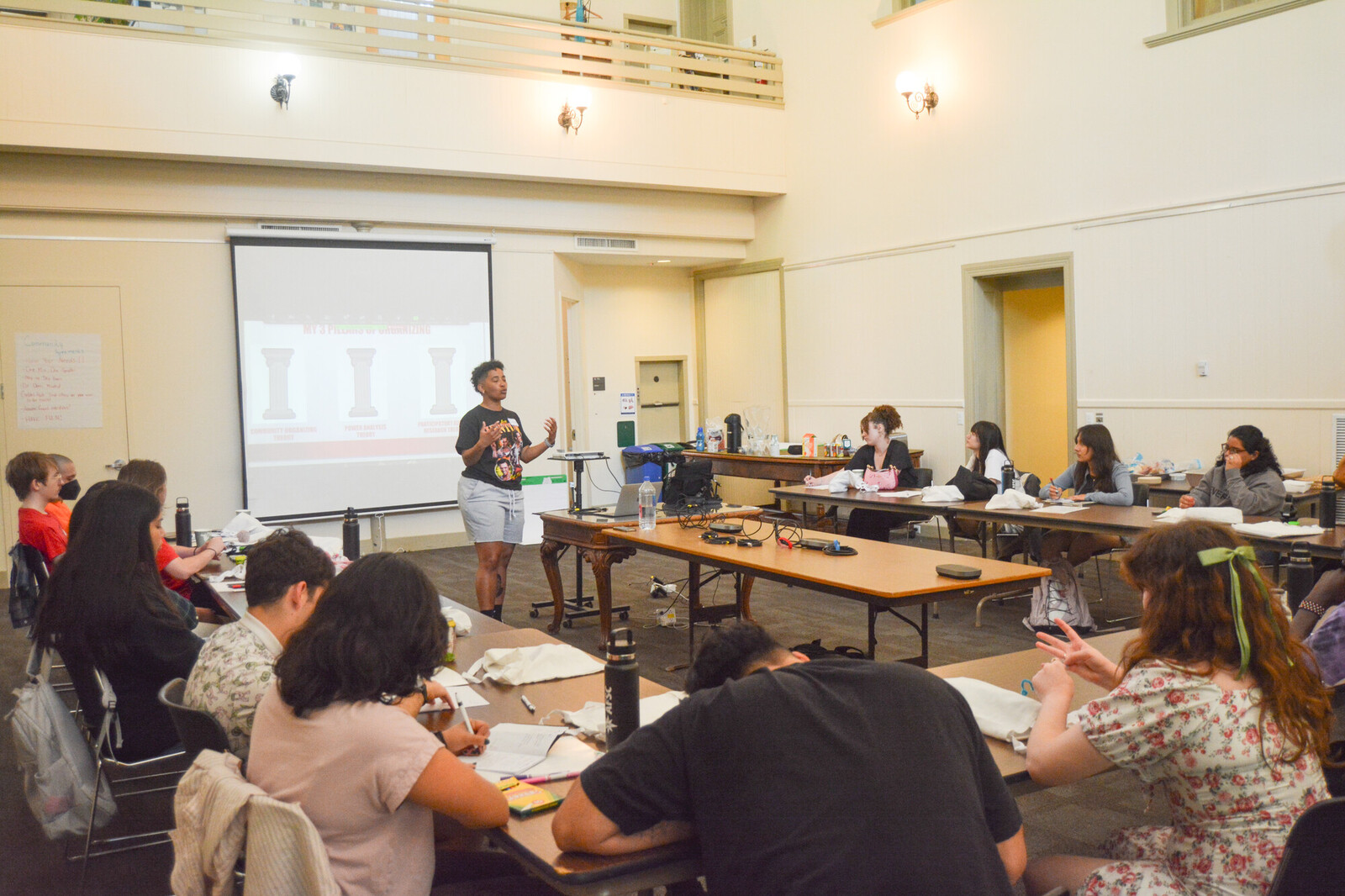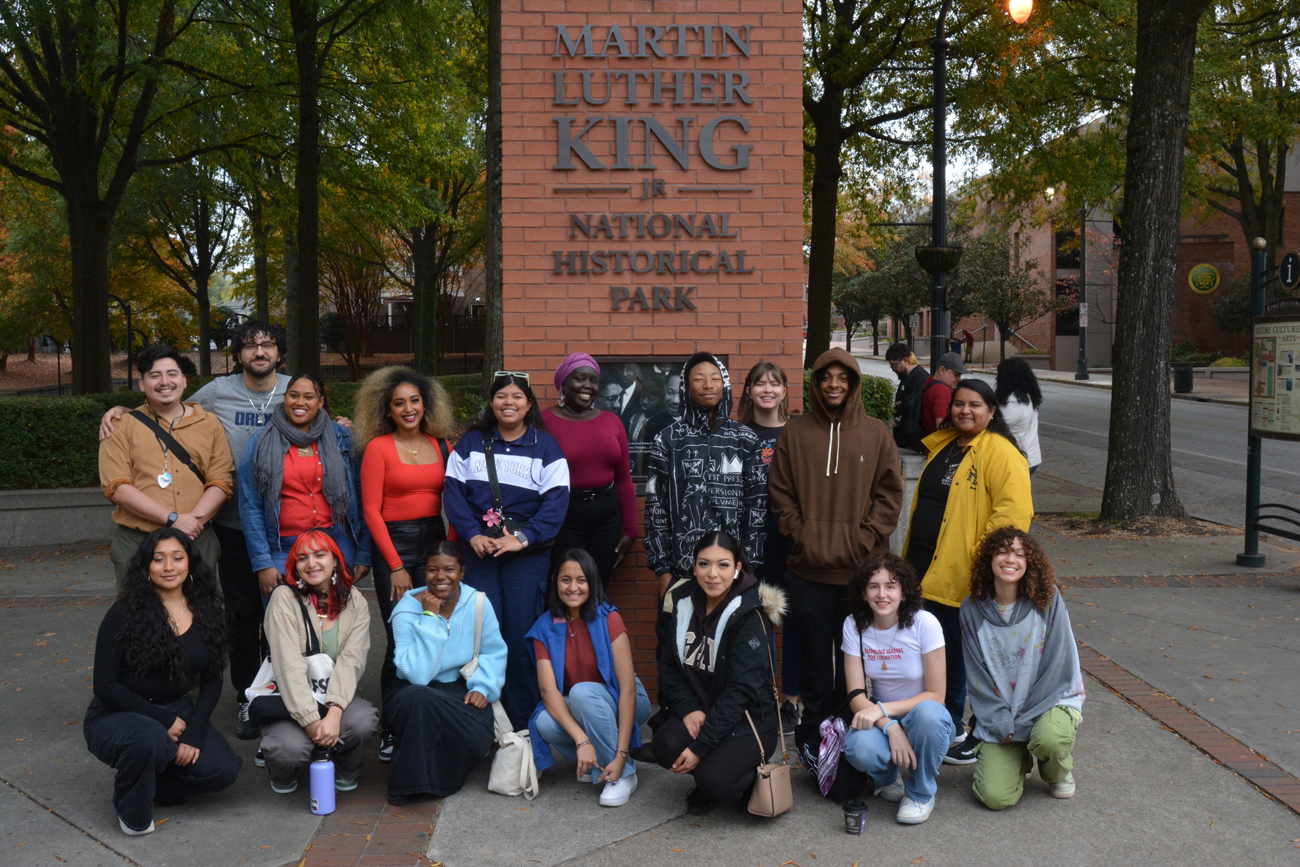For the past three years, AFSC’s Emerging Leaders for Liberation (ELL) program has helped young people strengthen their social justice and leadership skills. The program brings together Quaker youth alongside other young people involved with AFSC’s programs across the United States. Over eight months, they take part in trainings on organizing, advocacy, and nonviolent direct action, learning directly from AFSC’s experienced organizers and program staff. Each participant applies what they’ve learned by creating an action project in their community.
“ELL is a great opportunity for young people to learn about social justice, understand societal issues, and find concrete ways to create change,” says ELL Program Director Julián Andaya.
To date, ELL has trained more than 50 young people from diverse backgrounds. These young people have served more than 30 communities through their action projects.
“As we refine our curriculum and goals, the participants' action projects and what they can do get more impressive every year,” Julián says. “They're pushing beyond simple ideas like food and supply drives to more complex initiatives like campaigns and events with panels."
Putting learning into practice
The impact of ELL goes beyond its immediate participants. Several alumni have gone on to become staff members at AFSC, creating a pipeline for youth to continue their work for social justice.
After completing ELL, Sylvan Bachhuber went on to serve as AFSC’s Potts Intern working on our Community Safety Beyond Policing initiative and Think Twice campaign. "ELL taught me nuts and bolts tools and examples for how to make a change in a range of local communities that we were all a part of,” Sylvan says. “I also learned from the ways all of our presenters talked about and envisioned revolutionary change."
While ELL alumni like Sylvan are making an impact at AFSC and beyond, this year's ELL participants are already applying the skills they've learned. Hear more from two of this year's emerging leaders about the projects they're leading in their own communities:
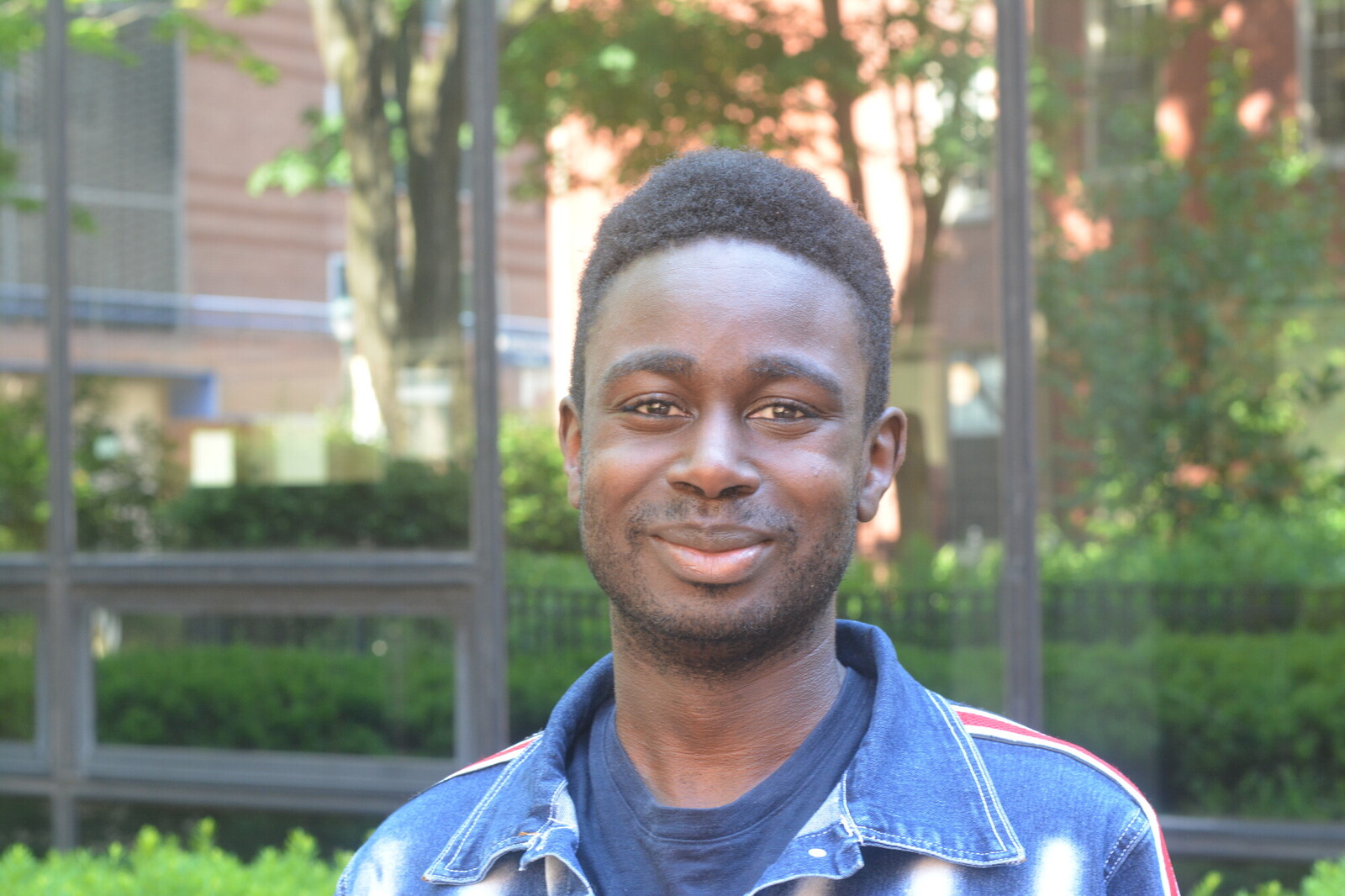
Photo: Jesse Saunders / AFSC
Mental health advocacy through art: Charles Osugo
Charles Osugo cares deeply about mental health awareness and psychiatric social justice. Drawing from his own experience with schizoaffective disorder, he advocates for better understanding and support of people with mental health issues.
Charles, who is a member of Minneapolis Monthly Friends Meeting, began his activism while working with a nonprofit focused on ending youth homelessness and reforming juvenile justice. While there, he met Brynne Crockett, director of AFSC’s Twin Cities Healing Justice Program. She encouraged him to apply for ELL.
As part of ELL over the past several months, Charles has deepened his organizing and advocacy skills. Being part of the program also inspired him to volunteer as an election judge in the upcoming general election. That's something he would never have considered.
“Before, I didn't know how to create the change I wanted to see, but ELL has shown me that it's possible and that I should do it,” Charles says. “The program has taught me about theories of power and how to be a better citizen. We've had conversations about current events, like the recent college campus protests, which have helped me understand complex global issues and how to explain them to others who might say ‘It doesn't affect me’ or ‘It doesn't matter.’”
For his action project, Charles organized a Therapy Slam open mic event. His goal was to promote psychiatric social justice through spoken word performances by local artists, including Charles himself. “I wanted to create a space to highlight pieces that come from a place of healing and reflection on how life has improved," Charles says.

Mobilizing Latina voters: Andrea Gonzalez
Andrea Gonzalez is the oldest of five children and the first in her family to graduate from college. From an early age, Andrea took on various leadership roles, including serving as high school student body president and participating in multiple clubs and activities.
Born and raised in Southern California, Andrea has maintained deep ties to the small Mexican town of Jalpa, Zacatecas, where her family is from. She visits every Christmas and summer break to stay connected to her roots.
“My motivation comes from all the women in my family's history who didn't have the same opportunities," Andrea says. “I want to create a pathway for future generations and be an example for my sisters, cousins, and the younger members of our extended family.”
Andrea remained active at the University of California Riverside, where she graduated with a degree in Media and Cultural Studies and a minor in Feminist Studies. Currently, she works as a marketing manager at the Temecula Valley Chamber of Commerce, where she's gained exposure to local government and policy work.
“I saw ELL as an opportunity to combine my leadership skills with advocacy and learning about policy,” Andrea says. The program has broadened her perspective on social justice and community organizing. It has also allowed her to connect with other young leaders across the country.
For her action project, Andrea organized an event titled “Fuerza Latina Gen Z Voting Empowerment Summit.” Through the event, she hopes to educate and inspire young Latina women on voting and political engagement. Speakers will address topics ranging from women’s empowerment to insights into the justice system.
“We always get told ‘go vote, go vote, go vote.’ But there's a lack of understanding about what we’re voting for or how to find that information,” Andrea says. “I want people who go to this event to come out with more knowledge about how to learn more about the issues and the candidates—not just for this election, but for the future. I want them to feel empowered that they can really create change.”
From mobilizing Latina voters to advocating for mental health through art, ELL participants like Andrea and Charles demonstrate the power of youth-driven social change. Equipped with new skills and a deeper understanding of social justice issues, they are taking action to build stronger, more just communities.
